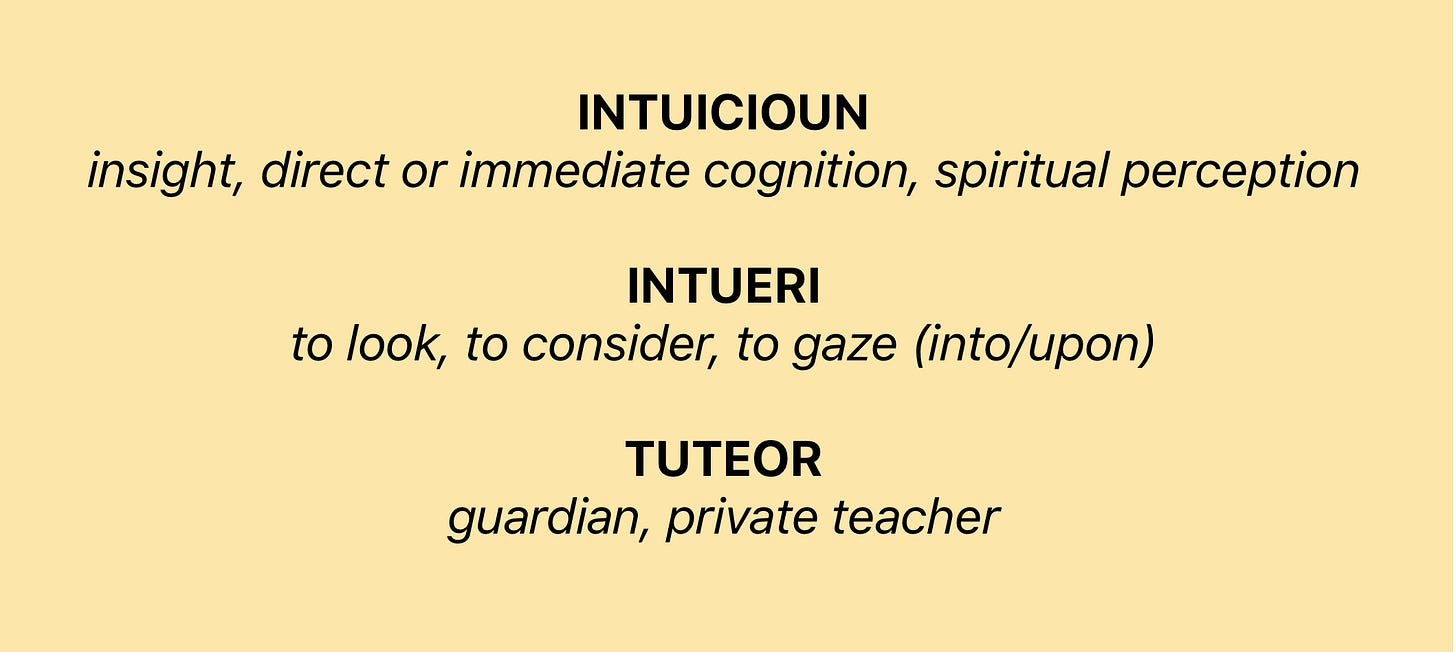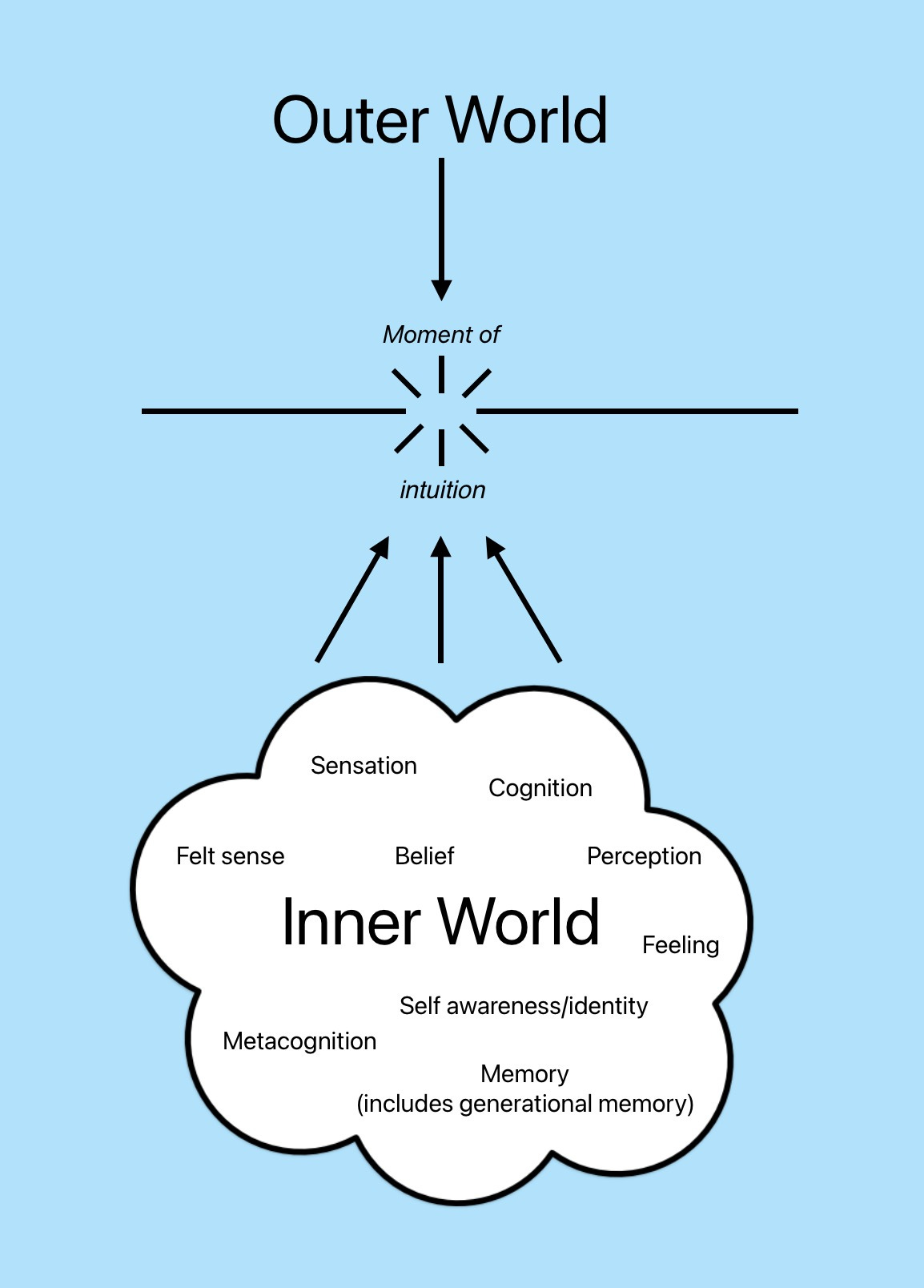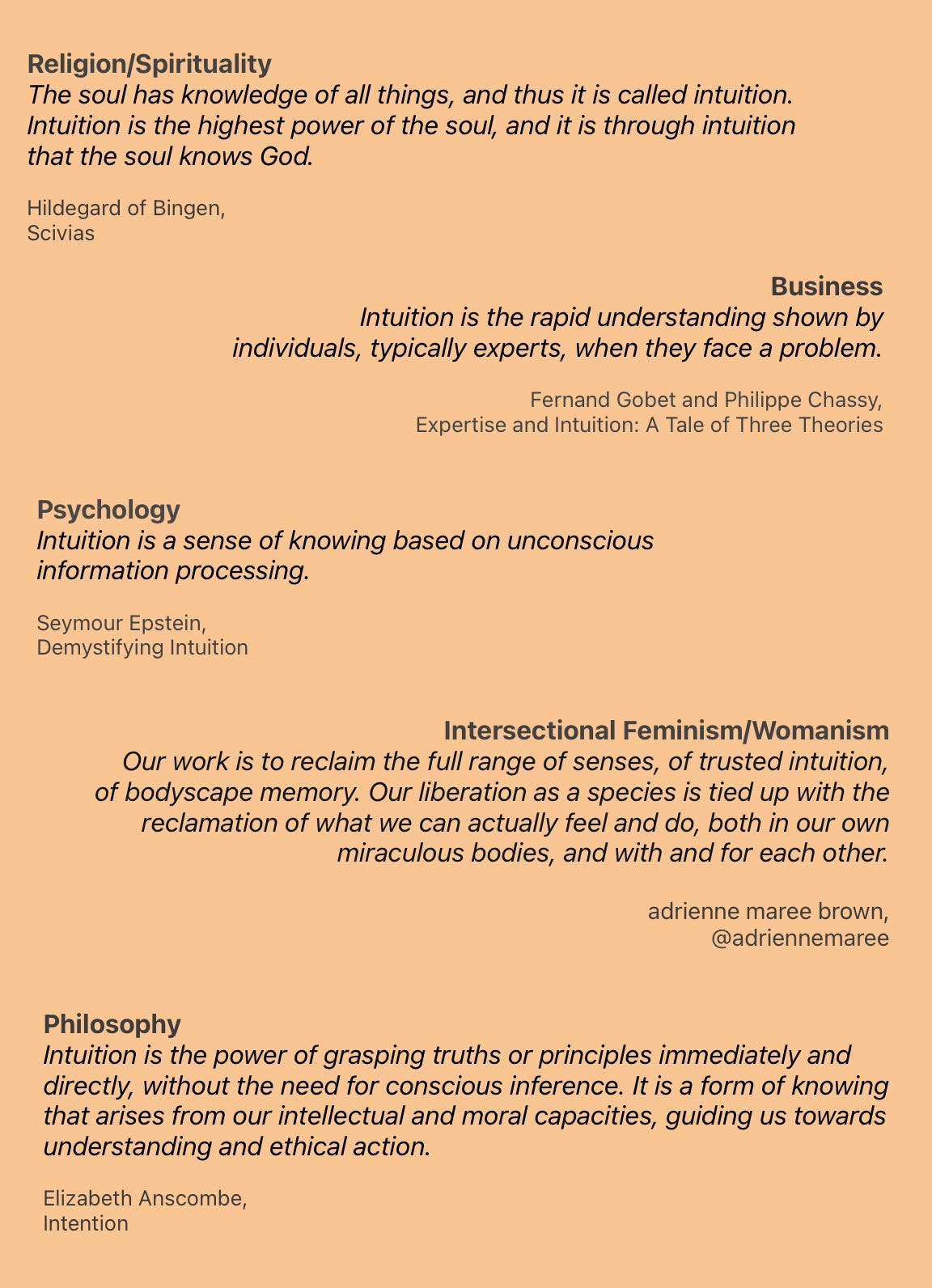Ok, let’s go back to the basics. What is intuition? We all know the word intuition colloquially – perhaps informally translated to be some kind of ‘inner knowing.’ Of course, it’s much more complicated than that. This post captures my thinking at this particular moment in time. I will undoubtedly dive further into this definitional territory over time, but for now, here is where I am.
A note of personal caution…
Defining intuition is slippery territory, and I don’t really have a desire to pin it down. I feel like we often get caught up definitionally, parsing words for their specificity and quibbling with precision for the sake of the quibble. Confining intuition definitionally feels like being on a treadmill to nowhere, so I start here just because this is where people often start. It helps us understand each other – but let’s not get stuck here.
I am drawn to intuition because it shouts out from the rooftops a certain numinousness or unknowability. Like when kids chase bubbles, grasp at them, popping them gleefully. I will forever remember my dear friend/bodyworker’s words as she painstakingly tried to get me out of my head and into my body (or at least to merge the two): upon sheepishly revealing that I was considering pursuing a PhD in intuition, she blurted out, ‘Well that’s ironic.” And it was/is at its core. To study something that you will never be able to confine in a box or hold in your hand or relegate to the mind.
And we are all but contradictions.
INTUITION ETYMOLOGY
Even though it is so much easier to cite examples of intuition or to lay out some basic textures of the experience of intuition, let’s dive into the exhilarating world of etymology!
The word intuition is derived from the Latin word intuicioun, with likely origins around the mid-15th century, which itself was derived from the Latin root intueri. The word shares history with the 13th century French word, tuteor.
The word intuicioun was initially used as part of philosophical or metaphysical discussions, drawing an immediate understanding of truth or reality without the need for conscious thought/evidence. Bridging the evolution of these words and their roots, we can grok that intuition’s origins connect perception (look/gaze/consideration), a divine or spiritual link (contextual based on usage), and a teaching or protecting drive.
That gives us a lot of room to play.
INTUITION’S SLIPPERY USAGE
Intuition as a noun is also often used interchangeably in three different contexts:
How cool that one word can encompass so much! And we have not even begun to dive into intuit as a verb…
In this post, I will focus on intuition as experience as an entry point for this evolving story.
THE CHARACTER OF INTUITION
For me, intuition as experience is part:
Time (immediacy)
Symphony of internal vehicles (interplay of perception, intellect, feeling, memory, etc.)
Non-dual confluence of our inner and outer worlds (most often intuition is thought of as an internal knowing, and perhaps ‘intuition as discovery’ takes place within an individual, but the experience itself seems to me a non-dual flashpoint of internal and external worlds)
Now, let’s try to draw this one out.
I will caveat this drawing by saying the distinctions I draw on the level of one’s inner world (feeling, cognition, memory, etc.) are ridiculously flawed (their distinction is existentially part of the problem!), but the purpose is to paint a picture of a complex and interconnected whole. It’s also important to say that I believe there is some spiritual or divine link that factors into the experience of intuition; while I will not try to visually pinpoint this (or even logic my way into the where and how), it is the stage or animating force upon which all of this plays out. But that’s for another post…
DISCIPLINE
There are so many disciplines that adventure into the territory of intuition. From psychology to business, neuroscience to religion, feminist studies to cognitive science, the list continues. I distinctly did not want to embark on a PhD within one academic niche, but rather to gather up the disconnected strands and explore them in complexity. Here are some simplified tastes of each discipline’s starting point; as I am currently in Italy, let’s think of this as our antipasti course.
FINALLY
My hope in this post is that I planted a few definitional seeds, disparate as they may seem at the moment. It is a starting point – for me, and hopefully for us, as we peel back and connect the layers.
A final, vital note. It is important to notice who is talking about intuition in what domains, who becomes fringe, who is taken seriously. In which disciplines is intuition a conversation of white men? Where are the voices of women and particularly women of color and to which corners of the conversation have they been relegated? My hope is that my exploration of intuition – and of human potential more broadly – can lead us to a place of intent listening, and inclusion of all the voices who want to contribute to this conversation. And with the power of this community, my larger hope is that we can start dipping our toes into experiences of intuition that make us a little bit uncomfortable, stretching ourselves to more freely explore possibilities of what it means to be human.







Thanks for this review, amazing how paradoxical are some of the definitions of intuition : conscious or unconscious ? Sudden or progressive ? Insight or action ? I’m finalising an academic review and will soon share the outcome !
You might want to explore Daniel Kahneman’s work on System I vs. System II thinking in regard to this.